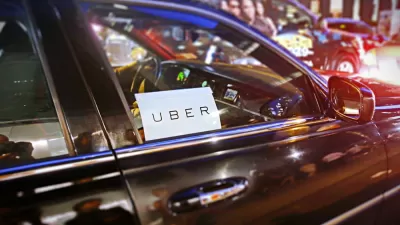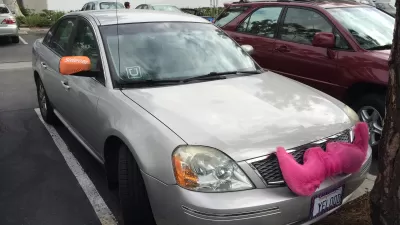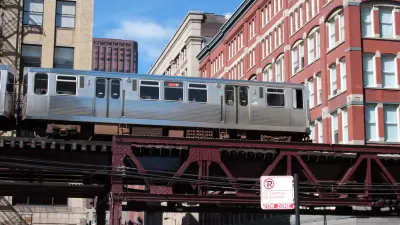Thanks to technology-enabled ride-hailing services, more households have the ability to go car-lite now than in preceding generations, according to a new study prepared for the American Public Transportation Association.
"At a press conference announcing a new study about mobility in American cities on March 15, Lyft’s director of transportation described her company and competitor Uber as 'allies'," writes Katy Steinmetz, chief of Time Magazine's San Francisco Bureau. What was more remarkable that the two competitors calling themselves allies, though, was that 39-page study [PDF] was prepared not for the ride-hailing industry but for the American Public Transit Association (APTA).
"Using Uber and Lyft is a gateway to a car-lite lifestyle, with users owning fewer cars in a household, according to the study," according to APTA's press release.
Now, I was unaware that "car-lite" (not "car-light") is a well-established term in transportation terminology. "We can make better cities by increasing the size and number of neighborhoods in which it's possible for the average person to live partially—not completely—car free," writes Daniel Herriges of Strong Towns. "There's a lot of value in living a car-lite lifestyle, and that's something available right now to many times more Americans than can currently, realistically, go car-free."
APTA "analyzed the usage of personal cars, public transit and other 'shared modes'—such as bikesharing, carsharing and the use of ride apps such as Uber and Lyft—in seven major cities: Austin, Boston, Chicago, Los Angeles, San Francisco, Seattle and Washington, D.C., " writes Steinmetz.
"This study was conducted by the Shared-Use Mobility Center (SUMC), with funding provided through the Transit Cooperative Research Program (TCRP). The study "suggests public transit and ridesourcing services such as Uber and Lyft are largely complementary, with each serving different trip types but working together to enhance urban mobility and decrease reliance on private autos," notes SUMC's press release
About SUMC: "The Shared-Use Mobility Center (SUMC) is a public-interest organization working to foster collaboration in shared mobility (including bikesharing, carsharing, ridesharing and more) and help connect the growing industry with transit agencies, cities and communities across the nation...."
FULL STORY: Time: Lyft and Uber Are ‘Allies’ in the Transit Revolution

Planetizen Federal Action Tracker
A weekly monitor of how Trump’s orders and actions are impacting planners and planning in America.

Maui's Vacation Rental Debate Turns Ugly
Verbal attacks, misinformation campaigns and fistfights plague a high-stakes debate to convert thousands of vacation rentals into long-term housing.

Restaurant Patios Were a Pandemic Win — Why Were They so Hard to Keep?
Social distancing requirements and changes in travel patterns prompted cities to pilot new uses for street and sidewalk space. Then it got complicated.

In California Battle of Housing vs. Environment, Housing Just Won
A new state law significantly limits the power of CEQA, an environmental review law that served as a powerful tool for blocking new development.

Boulder Eliminates Parking Minimums Citywide
Officials estimate the cost of building a single underground parking space at up to $100,000.

Orange County, Florida Adopts Largest US “Sprawl Repair” Code
The ‘Orange Code’ seeks to rectify decades of sprawl-inducing, car-oriented development.
Urban Design for Planners 1: Software Tools
This six-course series explores essential urban design concepts using open source software and equips planners with the tools they need to participate fully in the urban design process.
Planning for Universal Design
Learn the tools for implementing Universal Design in planning regulations.
Heyer Gruel & Associates PA
JM Goldson LLC
Custer County Colorado
City of Camden Redevelopment Agency
City of Astoria
Transportation Research & Education Center (TREC) at Portland State University
Jefferson Parish Government
Camden Redevelopment Agency
City of Claremont





























